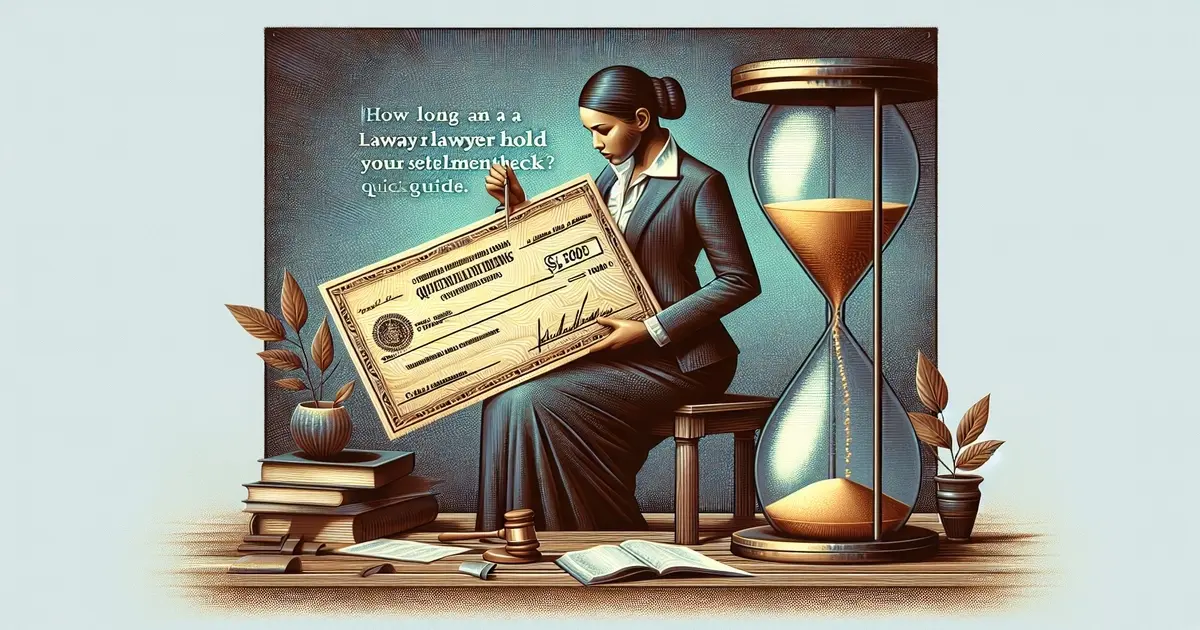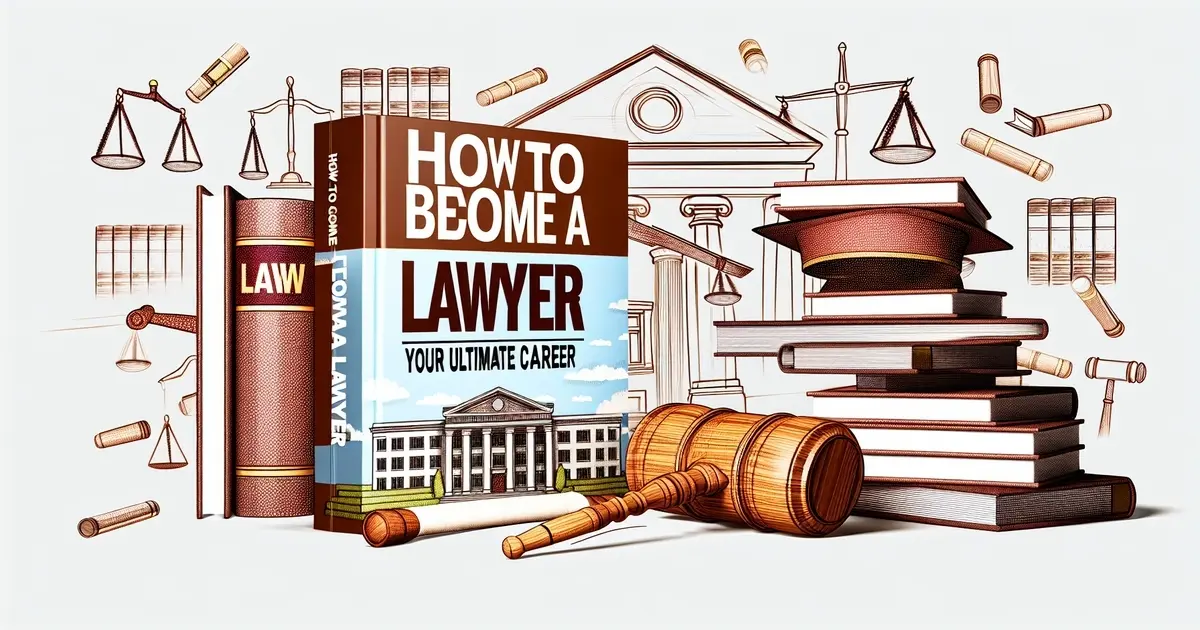Why Are Lawyers So Expensive? Unpacking the Real Costs
Have you ever wondered why contacting a lawyer for a legal problem feels like opening your wallet into a black hole due to exorbitant fees? Here are some reasons and ways to understand this phenomenon. You're not alone. The cost of legal advice, with its exorbitant fees per hour, can seem astronomical, leaving many scratching their heads in disbelief over the years. It's all about peeling back the layers to understand the blend of expertise, work, time, years, and resources that go into legal services, involving people and solving problems.
From the complexity of law school education to the high stakes in protecting clients' interests, various factors, including years of work and dealing with people, pump up those billable hours. This post dives deep into the heart of why lawyers, after years of work and dealing with people, command such hefty fees and how these costs break down in real-world scenarios. Let's unravel this mystery together.
Table Of Contents
Reasons for High Lawyer Costs
High Demand
The high demand for legal services is why lawyers are so expensive. Law firms often handle multiple cases simultaneously, stretching their resources thin. This high workload means that each client's case requires significant time and attention.
Lawyers are in constant demand across various sectors, including corporate law, criminal defense, and family law. Their expertise is crucial in navigating complex legal systems and ensuring justice. The more specialized or experienced the lawyer, the higher the cost due to their ability to offer valuable insights and outcomes.
Legal Liability
Another factor contributing to high lawyer costs is legal liability. Lawyers take on significant risks with every case they handle. They can face client lawsuits if they make mistakes or fail to provide competent representation.
To mitigate these risks, lawyers invest in comprehensive insurance policies. These insurance premiums can be costly but are essential for protecting lawyers and clients against potential financial losses from errors or omissions.
Licensing Costs
Obtaining and maintaining a legal license incurs substantial expenses for lawyers throughout their careers.
- First comes years of education at accredited institutions where tuition fees alone can reach astronomical sums.
- After graduation, aspiring lawyers must pass rigorous bar exams involving additional study materials and fees.
Once licensed, attorneys must continue investing in ongoing education to keep up with changing laws and maintain their licenses. These costs add up over time and contribute to why hiring a lawyer can be expensive.
Impact of Education on Legal Costs
Law School Debt
Lawyers often emerge from school with significant debt. This reality impacts their fees. They need to recover the cost of their education. Hence, they charge more for their services.
Graduating from law school is expensive. Students take loans to cover tuition and living expenses. Once they start working, a portion of their income goes towards repaying these loans. To manage this financial burden, lawyers set higher rates for clients.
Continuous Learning
The legal field requires ongoing education. Lawyers must stay updated on laws and regulations. This necessity adds to operational costs, influencing what they charge.
Lawyers attend seminars and courses regularly to maintain their licenses. These educational activities are not free. The costs incurred contribute directly to the fees lawyers charge clients.
Specialization Impact
Specialized training in law affects billing rates, too—lawyers with niche expertise command higher fees.
For example:
- A tax lawyer has specialized knowledge that's highly sought after.
- An intellectual property lawyer deals with complex cases involving patents and copyrights.
These specializations require additional training beyond primary legal education. Such expertise allows them to solve specific problems efficiently but also increases the cost of hiring them.

Operational Expenses in Legal Practice
Office Rent
Lawyers often set up their practices in prime locations. This choice is not just for prestige but also accessibility. Prime locations mean higher rent, which adds to the operational costs.
The need for a central location is crucial for client meetings and reputation. But it comes with a hefty price tag. High rents push up the overall expenses of legal practice significantly.
Staff Salaries
Legal offices are not one-person shows. They have a team of legal staff and paralegals. These professionals support lawyers by handling research, paperwork, and client communication.
Paying salaries to these essential team members increases operational costs. Skilled paralegals command high wages due to their expertise and contribution to case success.
Technology Investment
In today's digital age, investing in legal technology is non-negotiable. Software for case management, research tools, and secure communication platforms are costly but critical.
This investment ensures efficiency and security in handling cases. However, it adds another layer of expense to the firm's operations.
Complexity and Specialization in Legal Services
Complex Cases
Complex cases are like puzzles with many pieces. They take time and care to solve. Lawyers spend hours researching, planning, and executing strategies. This hard work raises their fees.
For example, a legal problem involving multiple countries' laws requires deep understanding and extensive research. Lawyers must know each country's legal system well. This complexity demands more resources, increasing costs for clients.
Specialized Fields
Some areas of law are very specialized. Think of them as highly skilled doctors for specific health problems. As you'd pay more for a heart surgeon than a general practitioner, specialized lawyers charge higher fees.
Fields like intellectual property or maritime law need lawyers with niche skills. These experts spend years gaining this knowledge. So, when dealing with these fields, expect to pay more for their expertise.
Litigation Workload
Preparing for trial is no small task. It involves gathering evidence, interviewing witnesses, and creating compelling arguments. All these steps require significant effort and time from lawyers.
Litigation also means facing unexpected challenges that can arise during the process. Each challenge can significantly increase the workload—and, therefore, the expenses.
Client Expectations and Lawyer Fees
Quick Resolutions
Clients often seek swift legal outcomes. This urgency can lead to higher fees. Lawyers work harder and faster, demanding more dollars per hour. The result is an increase in the overall cost.
Quick resolutions require extra effort. Lawyers may need to prioritize one client's case over others. They work longer hours or assign more team members to meet deadlines. This intensive labor is reflected in the bill.
High-Profile Expertise
Reputation matters a lot in the legal world. High-profile lawyers or firms come with hefty price tags. Their success rates justify their exorbitant fees.
Clients pay not just for the service but for the name, too. A renowned lawyer brings confidence and prestige to a case, elevating costs significantly.
Customized Strategies
Every client has unique needs requiring tailored legal strategies. Customization demands time, research, and creativity from lawyers, which elevates costs.
Lawyers analyze each aspect of a case differently. They craft strategies that best suit individual circumstances. This level of personalization requires resources that contribute to higher fees.
Billing Practices in the Legal Industry
Hourly Rates
Law firms often charge by the hour. This can quickly add up, especially for complex cases. Lawyers spend hours on research, interviews, and court appearances. Each task contributes to the total bill.
Clients may need to realize how time-consuming these tasks are. A simple court appearance might require hours of preparation. This includes reviewing case law and strategizing. Therefore, what seems like a quick job can become expensive.
Retainer Fees
Retainers are upfront payments to secure a lawyer's services. They ensure that a lawyer is available when needed. However, they also mean higher initial costs for clients.
This model benefits lawyers by providing a steady income. For clients, it guarantees immediate legal assistance whenever necessary. Yet, paying large sums can be a financial strain before any work begins.
Contingency Fees
Contingency fees offer an alternative payment method in some instances.
- Pros: No upfront payment is required from the client.
- Cons: Lawyers take a significant percentage of any settlement or judgment awarded.
In personal injury or workers' compensation cases, this arrangement is typical.
- The lawyer agrees to represent without an initial fee.
- If successful, they receive a portion of the payout.
While this can result in high payouts for lawyers upon winning a case, it also motivates them to achieve favorable client outcomes.
Value and Expertise Lawyers Bring to Clients
Expert Negotiation
Lawyers possess expert negotiation skills. These skills often save or make more money for clients than the legal fees cost. Imagine you're in a tough spot, needing to settle a dispute. A lawyer steps in, uses their expertise, and finds a solution that benefits you financially.
Negotiating isn't just about talking; it's an art. Lawyers spend years mastering this art. They know what to say, how to say it, and when silence is more powerful than words. This knowledge comes from experience and a deep understanding of human behavior.
Professional Network
Access to a network of professionals is another reason lawyers are expensive but worth it. This network includes not just any people but experts in their fields—like senior partners with decades of experience or specialists who know everything about a niche area.
This network can be invaluable for clients because lawyers have resources at their fingertips that others need. Need an expert witness? Your lawyer probably knows the best one in town. Are you looking for advice on international law? Your lawyer's colleague might be the top authority on the subject.
Risk Mitigation
The ability of lawyers to mitigate risks holds substantial value for clients' lives and businesses. Think about everything that could go wrong in life or during business deals—a lawsuit, contract disputes, regulatory issues...the list goes on.
A Skilled lawyer doesn't just react when things go south; they help prevent these situations from happening in the first place by foreseeing potential problems and advising accordingly. They ensure contracts are ironclad, compliance issues are addressed before they become problematic, and disputes are settled amicably whenever possible.

Financial Pressures and Entrepreneurship in Law
Solo Challenges
Solo practitioners often juggle multiple roles. They're not just lawyers but also business owners. This dual responsibility means they face the operational costs of running a business and fulfilling their legal duties.
Running a law practice involves more than court appearances and client meetings. It includes rent, utilities, software subscriptions, and staff salaries. These expenses pile up quickly, adding financial stress to solo practitioners. To maintain a sustainable income, they must set rates that cover these costs while providing for their livelihood.
Marketing Costs
Attracting clients is another significant expense for lawyers, especially those operating independently or in small firms. Effective marketing requires money spent on advertising, website maintenance, and networking events.
In today's digital age, having an online presence is crucial. Lawyers invest in professional websites and sometimes pay for search engine optimization (SEO) services to stand out. These efforts ensure potential clients find them amidst a sea of competition but at a cost that impacts their overall income.
Competitive Landscape
The legal field is competitive, with larger firms often dominating the market due to the vast resources at their disposal. Smaller practices thus need to justify why they charge what they do.
Competing with big law firms forces smaller entities to highlight the value they offer—personalized attention and specialized knowledge—in exchange for their fees. However, this necessity further drives up operational costs as it requires investing time and resources into building a reputation that can demand higher rates without deterring potential clients.
Implications of DIY Legal Representation
Costly Mistakes
Attempting legal matters alone can seem like a cost-saving strategy at first. However, without professional guidance, you're more likely to make mistakes. These errors can be expensive to fix.
For example, missing a filing deadline could result in the dismissal of your case. This would mean starting over or losing out entirely. Misunderstanding legal terms and procedures is common among non-professionals. Such misunderstandings often lead to incorrect filings or arguments that weaken your position.
Misinterpretation Risks
Laws are complex and constantly changing. Interpreting them without a legal background is risky.
When individuals misinterpret laws, it usually leads to more extended proceedings. Court cases drag on because of unnecessary disputes or corrections needed due to misunderstandings. More prolonged cases mean higher costs for all parties involved.
A simple contract dispute might turn into a prolonged battle if not handled correctly from the start.
Negotiation Leverage
Lawyers do more than argue in court; they negotiate deals and settlements, too.
You may accept less favorable terms with an expert negotiator simply because you need to know what's possible or how to ask for it.
- Pros of having lawyer negotiation:
- A better understanding of the law benefits
- Ability to leverage knowledge for better outcomes
- Cons when negotiating alone:
- Lack of expertise may lead to poor agreements
- Higher risk of financial loss
Negotiating yourself might save attorney fees but cost much more in the long run if the settlement is significantly lower than what could have been achieved with professional help.
Final Remarks
Digging into why lawyers cost an arm and a leg, we've sliced through the thick layers—from their pricey education to the intricate dance of legal specialization and client demands. It's clear that lawyering isn't just about wearing sharp suits and throwing around legal jargon; it's a high-stakes game demanding expertise, precision, and, yes, a fair bit of financial outlay. The leap from law school to landing in a courtroom or sealing deals is packed with expenses and expectations that don't come cheap. And while DIY legal routes might tempt you as a wallet-friendly shortcut, remember, skimping on expert advice can sometimes lead you down a pricier path in the long run.
So, before you balk at your next legal bill or consider going it alone, you can go over what's at stake. Quality advice doesn't come for peanuts, but it's worth its weight in gold when your back's against the wall. Do you have a legal challenge on your hands? Don't cut corners—seek out the pros. Your future self will thank you.
Frequently Asked Questions
Why are lawyers so expensive?
Lawyers often come with a hefty price tag due to their extensive education and the operational costs of running a legal practice. Imagine paying for a decade of school plus the lights in the office—that's part of what you're covering.
How does education impact legal fees?
Think of it like this: Lawyers spend years in school racking debt to learn to manage their cases. This investment in their education is a big reason they charge premium rates.
What makes legal services so complex and specialized?
Legal issues can be as intricate as a Swiss watch, requiring specific knowledge. Lawyers specialize much like doctors do, diving deep into areas like tax or family law, which means they bring highly focused expertise—hence, higher fees.
Do client expectations influence lawyer fees?
Absolutely! When clients expect top-notch service around the clock, lawyers have to deliver—and that level of service doesn't come cheap. It's akin to expecting five-star dining; gourmet comes at a cost.
Why do billing practices vary across the legal industry?
Billing practices vary as TV show genres—from flat rates (like sitcom reruns) to hourly billing (think suspense dramas where every minute counts). Each method reflects different types of cases and client needs.
Can DIY legal representation save money?
Going DIY on legal matters might seem cheaper than hiring an attorney—like fixing your plumbing. But mistakes can be costly, potentially turning that leaky faucet into a flooded kitchen. Sometimes, it's worth investing in professional help from the get-go.
How do financial pressures, such as exorbitant fees and stress from legal problems, affect lawyers starting their firms?
Imagine opening your dream café with courtrooms instead of coffee machines—that’s what it’s like for lawyers starting their firms. They face financial pressures from day one, needing enough dough not just for operations but also to pay off any lingering student loans.
Related Post
How Do Pro Bono Lawyers Get Paid?
Have you ever wondered how lawyers, often working for nonprofit organizations or on contingency fees, keep the lights on while providing free legal services for disability cases?
Read MoreWhat Does a Lawyer Wear?
Did you know that 75% of people form their first impression of a lawyer based on appearance, impacting judges and the justice system?
Read MoreWhat Happens If a Lawyer Loses a Case
Have you ever wondered about the ripple effects when a lawyer or attorney doesn't win in court, especially under a contingency fee arrangement or contingent fee with the jury involved?
Read MoreWhat Are the Highest Paid Lawyers?
Have you ever wondered why some lawyers in their legal career, specifically big law investors, drive luxury cars while others seem to scrape by with their jobs and money?
Read MoreHow Long Can a Lawyer Hold Your Settlement Check?
Have you ever wondered why getting your hands on your settlement check feels like forever, with money sitting in trust accounts, balancing client trust?
Read MoreHow to Become a Lawyer
Did you know that there are over 1.3 million active attorneys in the United States alone, including law students from law schools and those in law firms practicing law?
Read More






